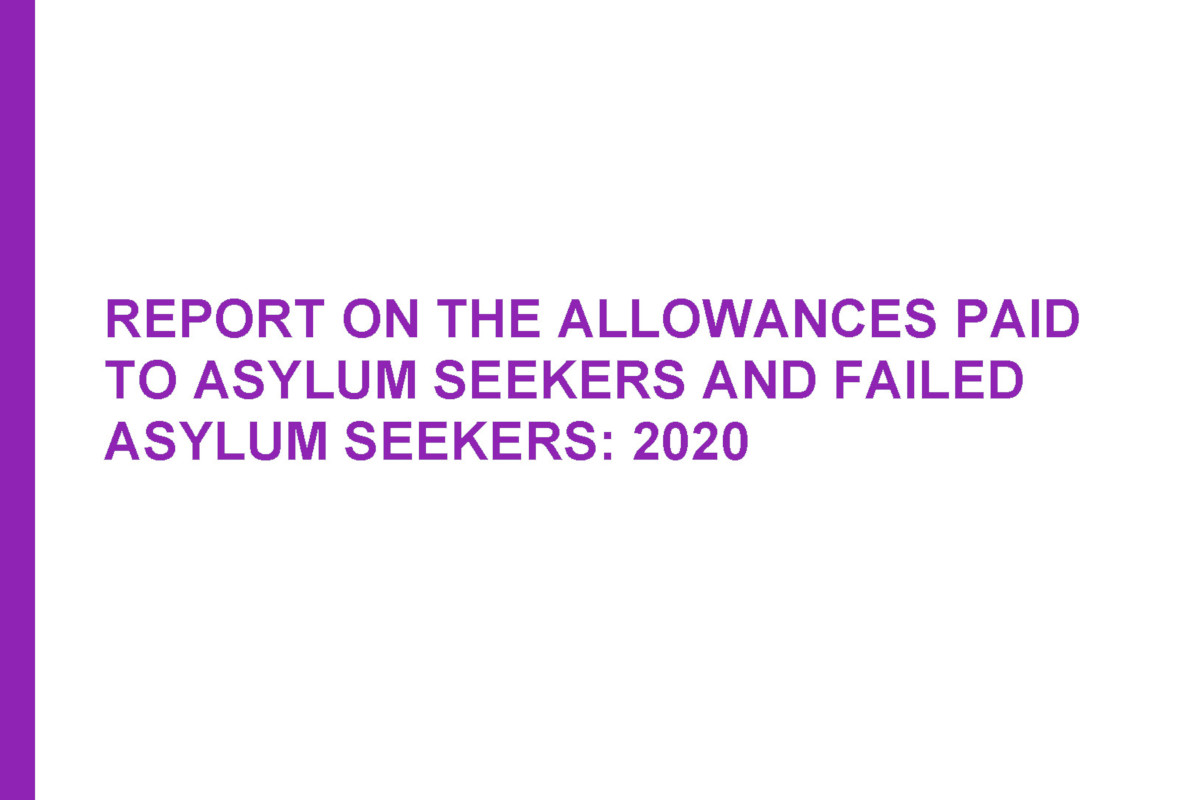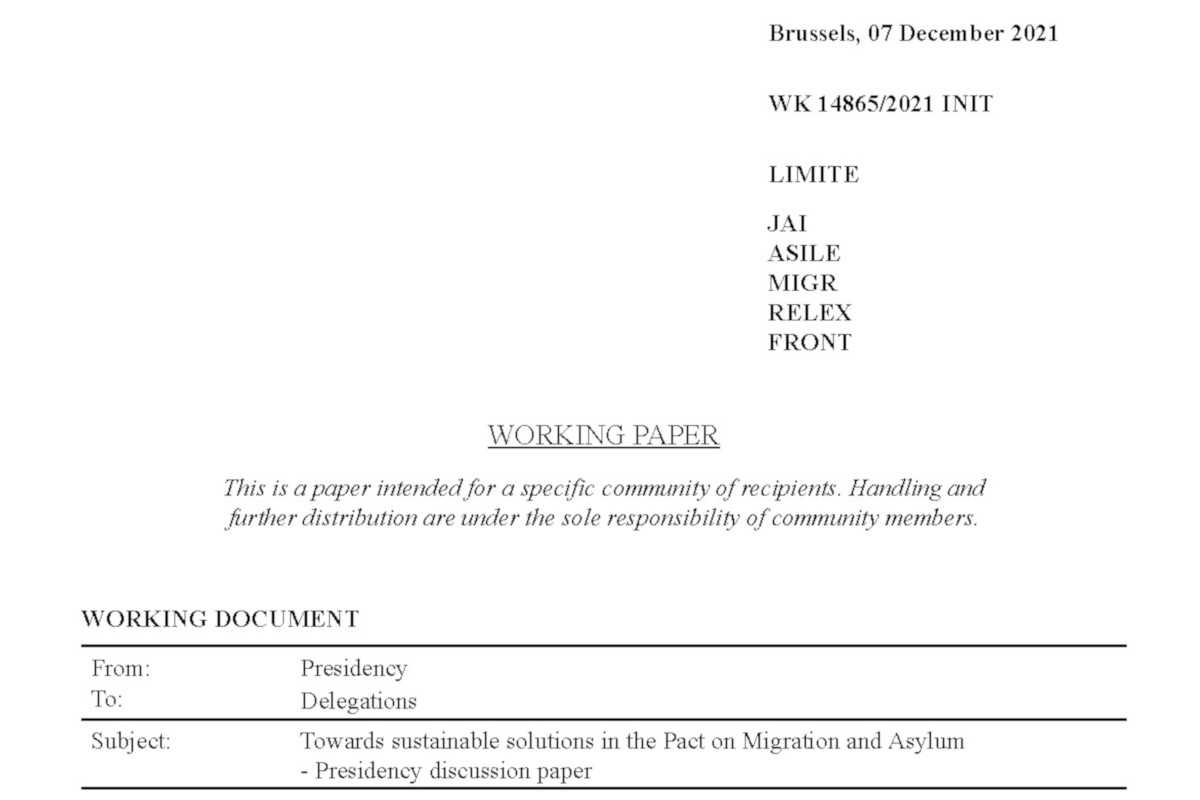Book review: ‘EU Migration Agencies: The Operation and Cooperation of Frontex, EASO and Europol’
Topic
Country/Region
09 December 2021
David Fernández-Rojo’s comparative analysis, published by Edward Elgar Publishing, explores the way in which the three agencies have grown together, and what this means for the future of migration management.
Support our work: become a Friend of Statewatch from as little as £1/€1 per month.

EU Migration Agencies: The Operation and Cooperation of FRONTEX, EASO and EUROPOL. David Fernández-Rojo, Edward Elgar, 2021. Reviewed by Jane Kilpatrick, Statewatch Researcher.
Published in 2021, between the announcement of the proposed New Pact on Asylum and Migration and the intensified scrutiny of the fundamental rights record of Frontex, perhaps the agency most synonymous with EU migration policy, this volume examines the expanding operational powers of the three agencies – Frontex, the European Asylum Support Office, now the EU Agency for Asylum, and Europol – critiquing the lingering narrative of the agencies as technical coordinators.
The book reaches a comparative conclusion that Europol plays a secondary operational role compared to Frontex and EASO, though if its pattern of expansion continues it would benefit from a Consultative Forum, Fundamental Rights Officer and an individual complaints mechanism, as with the other two agencies.
Through six chapters, EU Migration Agencies covers:
- A comparison of the three agencies from their establishment to the reinforcement of their operational tasks since 2015;
- Bilateral and multilateral cooperation by the agencies in terms of formal agreements and in practice;
- The operational setting of the hotspot approach, and how this is now becoming permanent policy;
- The limitations of each agency’s reinforced operational tasks and cooperation with each other.
Overall, this book outlines a pattern of the “agencification” of the EU’s area of freedom, security and justice (ASFJ), through which each agency’s legal mandate lags behind its enforcement powers on the ground, followed by new legislation to catch up. This pattern seems slower in the case of Europol. This discrepancy links to a lack of transparency, because of uncertainty over the level of discretion and effective control.
Noting that: “The original operational tasks conferred on Frontex, EASO and Europol were reinforced in the aftermath of the “refugee crisis” and these agencies are increasingly called to develop a noteworthy policy-implementing role”, Fernández-Rojo underlines the need for clarification of the agencies’ responsibility and strengthening of their capacities to deal with possible fundamental rights violations.
Through this pattern of agencification, Fernández-Rojo also examines whether the hotspot approach will become the default crisis management instrument for migratory pressure at external borders, arguing that a parallel legal framework for hotspots, and the agencies’ role in them, could be adopted.
The hotspot approach strengthens their role in operational assistance and inter-agency cooperation. However, there is no legally binding framework to regulate and delimit the agencies’ tasks, or those of the competent national authorities, in the hotspots.
Chapter V explores the inadequacy of the model of delegation of powers according to article 13 TFEU. [1]
Europol, created with a “purely intergovernmental character”, nonetheless signalled an institutional shift as member states showed openness to balance the need for a common coordinated approach with their own sovereign interests. It became a decentralised agency in 2010 and has since then increased its operational (as opposed to purely information sharing) role.
Frontex, too, was created with the mandate of strengthening cooperation between member states (to effectively manage their external borders), and subsequent regulations have progressively increased its technical and operational mandate.
EASO was created to offer permanent support to competent national asylum authorities through coordination on the ground through experts, infrastructure and asylum services. With a mandate to provide expertise in translation services, country of origin information and case-handling knowledge, EASO’s operating plans are studied in this volume, and reveal close assistance with identification, registration, detection of vulnerabilities and management of national reception centres.
Concluding that the “agencification of the ASFJ is an unrelenting process” (emphasis in the original), with indirect endorsement from the CJEU, Fernández-Rojo predicts the continued stretching of the agencies’ operational, monitoring and implementation powers.
[1] “Each institution shall act within the limits of the powers conferred on it in the Treaties, and in conformity with the procedures, conditions and objectives set out in them.”
Our work is only possible with your support.
Become a Friend of Statewatch from as little as £1/€1 per month.
Spotted an error? If you've spotted a problem with this page, just click once to let us know.

